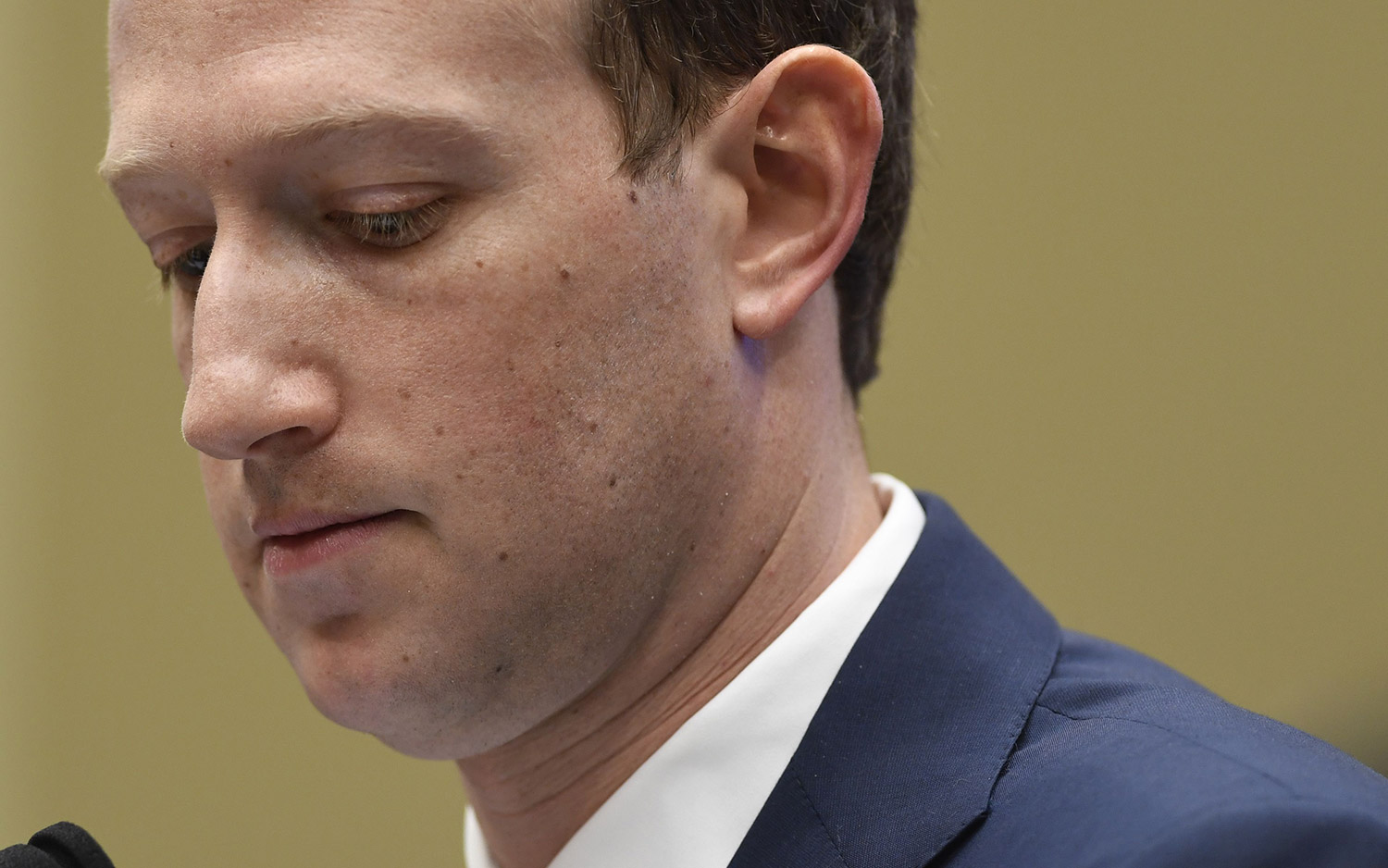5 Biggest Takeaways From Zuckerberg's Testimony
Several congressmen told Facebook CEO Mark Zuckerberg that his industry would soon be regulated because it could no longer be trusted.
Facebook CEO Mark Zuckerberg faced even stronger questions today (April 11) from congressmen than he did yesterday from senators. Several Democrats told him that Facebook would soon face stronger regulations, while many Republicans hammered him about perceived bias against conservative opinions by Facebook content monitors.

"You have a long list of apologies," Rep. Janice Schakowsky, D-Illinois, told Zuckerberg as she read out apologetic statements he had made dating back more than a decade. "This is proof to me that self-regulation does not work."
Rep. Mike Doyle, D-Pennsylvania, pointed out that Facebook had in 2011 promised the FTC that it would protect user data or suffer financial penalties.
"There's a real trust gap here," said Doyle. "Why should we trust you to follow through on these promises when you have demonstrated repeatedly that you're willing to flout both your own internal policies and government oversight when the need suits you?"
MORE: Use This Shortcut to See If Your Facebook Data Leaked
"I disagree with that characterization," Zuckerberg replied.
"The only way we're gonna close this trust gap," Doyle said, "is through legislation that creates and empowers a sufficiently resourced expert oversight agency with rule-making authority to protect the digital privacy and ensure that companies protect our users' data."
Sign up to get the BEST of Tom's Guide direct to your inbox.
Get instant access to breaking news, the hottest reviews, great deals and helpful tips.
'You Are Hurting People'
A more poignant line of questioning was led by Rep. David McKinley of West Virginia, who pointed out that Facebook was still carrying ads for illegal online pharmacies that sell opioids such as Vicodin, Percocet and OxyContin without a prescription. He displayed a screenshot of such an ad that had been taken yesterday.
"The FTC last week said that Facebook isn't taking enough steps to remove opioid listings," McKinley said. "We're in the middle of an opioid epidemic. But your platform is still being used to circumvent the law. Facebook is enabling illegal activity and you are hurting people."
"We need to do better job of policing content on the service," Zuckerberg said.
Rep. Gus Bilirakis of Florida followed up with that tack.
"This is bad stuff with regard to the illegal online pharmacies," Bilirakis said. "Can you tell us when these ads will be offline?"
"If people flag those ads for us, we will take them down now." Zuckerberg replied. "We need to be able to build tools that will proactively go out and identify these ads before people flag them."
A Word of Warning
Rep. Billy Long, R-Missouri, offered Zuckerberg some folksy political wisdom.
"Congress is good at two things -- doing nothing, and overreacting," Long said. "We've done nothing about this, and now we're getting ready to overreact. Take that as a word of warning."
Long then turned to the issue of whether Facebook discriminates against expressions of conservative political opinions.
"Let me show you a picture here," he said, as his aides showed a photograph. "Can you identify these people?"
"I believe it's Diamond and Silk," Zuckerberg said, referring to a pair of video bloggers who said Facebook took down their videos, and whom at least three other congressmen brought up during the hearing.
"Their content was deemed by your folks to be unsafe," Long said. "Diamond and Silk have a question for you: What is unsafe about two black women supporting President Donald J. Trump?"
"Nothing is unsafe about that," Zuckerberg said. "The specifics of this situation, I'm not as up to speed on them as I should be."
"I would suggest that those 20,000 people you have doing analytics look at how many liberal websites have been taken down and how many conservative websites," Long said. "Remember, we do nothing, and we overreact. You're the guy to fix this, we're not. You need to save your ship."
Dearth of Diversity
However, some representatives asked Zuckerberg why Facebook had purportedly suppressed liberal voices, and whether the paucity of African American staffers in Facebook ranks had contributed to that.
"Rogue ads [during the 2016 presidential election campaign] specifically characterized and weaponized African American groups such as Black Lives Matter as dangerous groups," said Rep. Yvette Clarke, D-New York. "Do you think the lack of diversity in your C-suite contributed to this problem?"
"In this case," replied Zuckerberg, "that was not part of the issue because we were slow to identify Russian disinformation actors."
"If everyone involved in the organization is monolithic," Clarke said, "then you can miss these things easily."
"The Congressional Black Caucus has been holding your industry accountable," Rep. G.K. Butterfield, D-North Carolina, told Zuckerberg. "There are no African Americans on your leadership team. Can you incrase the numbers on your leadership team, to become more diverse?"
"We will certainly work with you," Zuckerberg said.
Does Facebook Listen to Your Conversations?
Rep. Larry Bucshon, R-Indiana, asked Zuckerberg about the persistent rumor that Facebook listens to people's real-life conversations in order to sell ads based on the content of the conversations. (There's no real evidence that this actually happens, and the practice would be illegal in most U.S. states.)
"If you're not listening to us on the phone, who is, and do you have specific contracts with these companies that are collecting information verbally?" Bucshon asked.
"We don't collect information verbally, and we don't have any contracts that companies who do," replied Zuckerberg.
"It's pretty obvious to me that someone is listening to the audio on our phones. That's a pretty big issue to me," Bucshon said. "When you have, say, an executive session of your corporate board, you have decisions to be made, do you allow the people in the room to have their phones on them?"
"We do. I don't think we have a policy that says your phone can't be on," Zuckerberg said, looking startled. "Facebook doesn't do this, and I'm not familiar with companies that do either."
'You Didn't Know Some Key Facts'
Rep. Debbie Dingell, D-Michigan, launched one of the most withering attacks on Zuckerberg. She was disappointed that during yesterday and today's hearings, Zuckerberg had repeatedly said that he didn't know the answers to some pretty basic questions.
"As CEO, you didn't know some key facts," Dingell said. "You didn't know about major court cases regarding your privacy policies against your company. You didn't know what a shadow profile was. ... You didn't know how many apps you need to audit. You did not know how many other firms have been sold data by Dr. Kogan, other than Cambridge Analytica and Eunoia Technologies, even though you were asked that question yesterday. ... You don't even know all the kinds of information Facebook is collecting from its own users."
Dingell then asked him if he knew how many Facebook like and share buttons there were on non-Facebook web pages, and how many non-Facebook web pages contained the Facebook Pixel code that silently tracked users. Zuckerberg said he didn't know the answer to any of those questions.
"Do you know now whether there are other fourth parties who had access to the data from someone other than Dr. Kogan?" Dingell asked. "Or is this something that we're going to find out in a press release down the road?"
"We're now going to investigate every single app," Zuckerberg replied. "I do think that we'll find some apps that did abuse people's data, and we'll ban them from the platform and make sure they delete the data."
That didn't really satisfy Dingell, who told Zuckerberg that she hoped he would have answers for the committee to her questions within 72 hours, the same amount of time that the European Union will give content holders to respond under upcoming regulations.
"Data protection and privacy are like clean air and clean water," she concluded. "There need to be clear rules of the road."
Paul Wagenseil is a senior editor at Tom's Guide focused on security and privacy. He has also been a dishwasher, fry cook, long-haul driver, code monkey and video editor. He's been rooting around in the information-security space for more than 15 years at FoxNews.com, SecurityNewsDaily, TechNewsDaily and Tom's Guide, has presented talks at the ShmooCon, DerbyCon and BSides Las Vegas hacker conferences, shown up in random TV news spots and even moderated a panel discussion at the CEDIA home-technology conference. You can follow his rants on Twitter at @snd_wagenseil.

